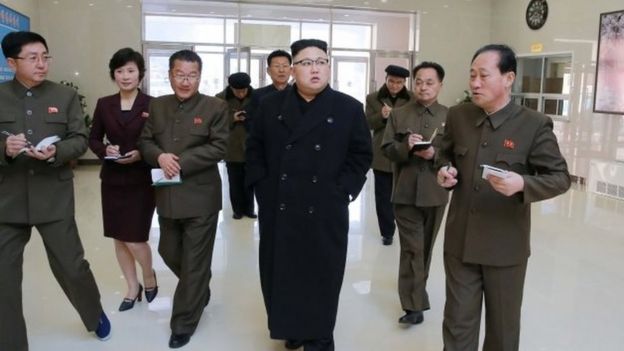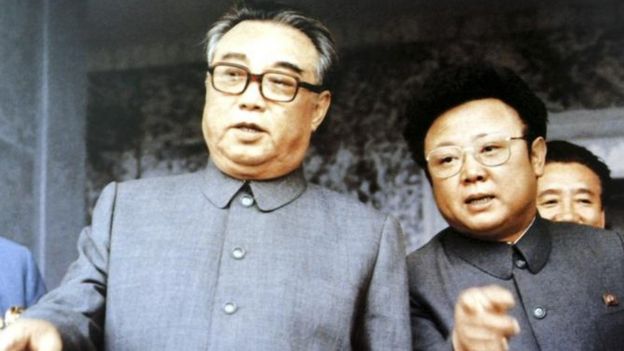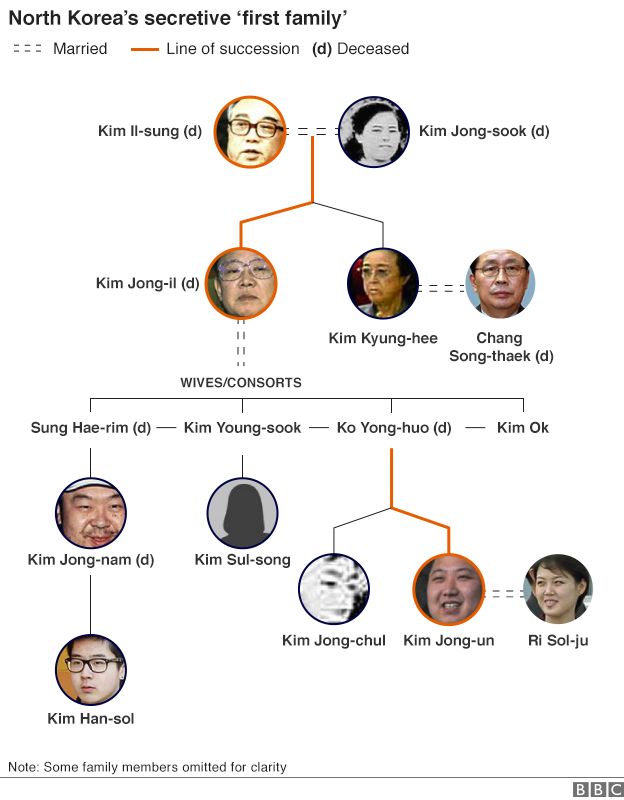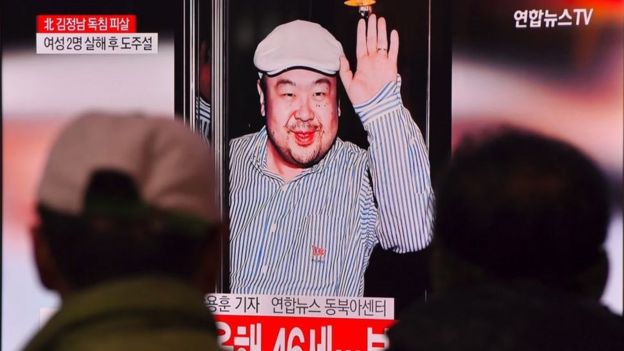Death in a dynasty: What led to the demise of Kim Jong-nam?
Kim Jong-nam was the eldest son of late North Korean leader Kim Jong-il and the elder half-brother of current leader Kim Jong-un.
Jong-nam was born in May 1971 in Pyongyang. His mother was North Korea's film actress Song Hye-rim. She was the daughter of South Korean communist intellectuals who migrated to the North during the Korean War.
She was four or five years older than Kim Jong-il and was still married to another man (with whom she had a child) when they began their romantic relationship.
By the conservative standards of North Korean society, this was a fairly sordid relationship, and for many years Kim Jong-il concealed his common law wife and new son from his father, Kim Il-sung.
At the time of Kim Jong-nam's birth, Kim Jong-il was the leading candidate to succeed his father, and details of his relationship with Ms Song, if they had become public, could have derailed his ambitions (particularly as his nearest political rival was his despised stepmother).
Because of the nature of the relationship, Kim Jong-nam was shuttered away in a large residence in central Pyongyang.
As his mother suffered from a variety of physical and mental infirmities requiring treatment outside North Korea, he lived with his maternal grandmother and his maternal aunt, Song Hye-rang.
The second Ms Song was an author and widow with two children of her own.
10-year odyssey
When Jong-nam was an infant, his aunt, Kim Kyong-hui, (Kim Jong-il's sister) tried to take the baby away and adopt him as her own child. She was overruled, but she would always support Jong-nam.
Instead, he grew up in secret, literally sealed behind palace gates.
Kim Jong-il doted on his son - co-sleeping with him, eating dinner and telephoning him when he was too busy to return home.
Despite rumours perpetuated by South Korean sources, Jong-nam did eventually meet and forge a relationship with grandfather Kim Il-sung.
 REUTERS
REUTERS
In 1979, Jong-nam began a 10-year odyssey studying and living outside North Korea.
He stayed in Russia and Switzerland and eventually became fluent in French and English, returning to North Korea in the late 1980s.
His exposure to the outside world and his impatience living in relative social isolation in Pyongyang and Wonsan led him to question North Korea's political and economic system.
At several points, Kim Jong-il became so frustrated with Jong-nam that he threatened to send the young man to a political prison camp to work in a coal mine.
According to his aunt, the threat of imprisonment was so real that the family took measures to buy adequate clothing and shoes for the day when they would be sent away.
'Party boy'
Instead of being incarcerated, Jong-nam spent his 20s contending with his father's demands and unrealistic expectations.
Jong-nam would never be a viable candidate as his father's successor, but he still joined the family business. He would be linked to North Korea's internal security apparatus and its foreign exchange-earning operations outside the country.
During the Arduous March of the 1990s, as thousands of North Korean citizens starved to death, Jong-nam participated in audits in which central party officials reviewed the finances and business practices of state-owned factories.
 REUTERS
REUTERS
After some of these audits, Jong-nam would witness the public executions of factory managers accused of stealing from the state.
All of this would be enough to disillusion Jong-nam about the country in which he was born and the political system his father and grandfather led.
He married in the late 1990s and fathered several children. From the early 2000s onward, Jong-nam would begin to reside outside the DPRK, living at the Kim family's houses in Macau and a separate residence in Beijing.
He would be tasked with managing some of the family's financial accounts (which total billions of dollars). He also would be involved in some of North Korea's illicit business operations.
While Jong-nam was never directly involved in such activities as narcotics trafficking or arms smuggling, he did have an active role in seeing that some of the monies from both legitimate and illicit activities avoided the scrutiny of legal authorities.
It was no accident that Jong-nam frequented casinos throughout Asia and maintaining some of these financial interests led to a jet-set lifestyle and cemented his reputation as something of a "party boy".
Family rivalries
Rewind back to 1979, when Jong-nam went overseas.
Kim Jong-il got drunk as Jong-nam departed the country and tearfully reproached Song Hye-rang: "You... you are doing this. You are taking my boy away from me."
By the late 1970s, Kim Jong-il had begun a relationship with a dancer in the prestigious Mansudae Art Troupe, an ethnic Korean repatriated from Japan named Ko Yong-hui.
With his son out of the country, Kim Jong-il set up a household with Ko and fathered three children with her, the middle one being the current leader Kim Jong-un.
In contrast to his other wives and common law partners, Ko actually took an interest in Pyongyang's palace politics and, what is more, Kim Jong-il fell passionately in love with her.
Jong-nam would later tell an outsider that - once he had left North Korea to study - his father used his relationship with Ko and their children to fill the void left by Jong-nam.

Ko was ambitious. She befriended the close aides and generals that made up her husband's entourage.
When Jong-nam returned from studying abroad in the late 1980s, there were already rumours among Kim family staff that the "button nose" (referring to Ko) was positioning her children for succession, even though discussions about hereditary succession were generally prohibited and could get some North Koreans sent to the firing squad.
During the late 1990s to early 2000s, Ko acted as a de-facto first lady, accompanying her husband on military inspections and greeting top North Korean leadership.
This would lay the groundwork for one of sons, Jong-un or his older brother, Jong-chol, to become hereditary successor.
When Jong-nam was arrested at a Tokyo airport with a counterfeit passport in May 2001, it initially served to embarrass the Kim family and other North Korean elites because it exposed the fact that they sometimes travelled using passports with assumed identities.
It has been widely misinterpreted and misreported that this incident sidelined Jong-nam as hereditary successor; he never was.
But this incident was used internally by Ko to press the claims that one of her sons would succeed Kim Jong-il. And so, unwittingly, the exaggerated rivalry between Jong-un and Jong-nam was born.
Did Kim Jong-un have his half-brother killed?
With numerous pronouncements and analyses that Jong-un is engaged in a "reign of terror" targeting North Korean political leaders or that his leadership (not to mention his mental health) are "unstable", it doesn't serve Jong-un's public image or political interests to have his half-brother assassinated.
It would just feed the rumours, and one doubts that Jong-un would give his South Korean counterpart that kind of satisfaction.
Jong-nam was not a threat or a credible rival to Jong-un's leadership. He had no interest in the job itself.
Living outside the country as long as he has, Jong-nam could not form a power base among DPRK elites and was largely clueless about how to seize the regime's nodes of control.
Jong-nam was also closely tied to Chinese elites and had lived under some protection from Chinese authorities.
Within the past few months, Pyongyang has made an attempt to shore up ties with Beijing, a major ally and its largest trading partner.
Unless Jong-nam had outlived his usefulness to elements of the Chinese government, it is not in Jong-un's geopolitical interests in the region to have his half-brother killed.
Grandson figure
Jong-nam didn't possess a significant powerbase in Pyongyang.
Publicly and privately, he expressed little interest in taking the reins of power in North Korea.
 AFP
AFP
However, given his heritage, Jong-nam was viewed by some elderly North Korean elites as a kind of grandson figure.
These elites were close comrades of Kim Il-sung. They knew Jong-nam's personal history, his back story, and so he was treated with a special affection by some of the country's top heroes.
This affection and relationship could not necessarily form a basis of political support domestically, but it would have been helpful had Jong-nam ever put himself forward as a political rival to his half-brother.
Read more
- Malaysia hunts for Kim death suspects
- A history of foreign assassinations
- Meet North Korea's secretive 'first family'
- Pyongyang's latest missile test explained
Since Kim Jong-un assumed power in 2011, North Korea's state media have gone out of their way to show these revolutionary elders praising Jong-un.
At state events, Jong-un always makes a point of greeting these elders (and being photographed and filmed doing so).
This goes above and beyond merely paying respect to his elders and national heroes.
Instead, for propaganda purposes, Jong-un needs to be seen as having the blessing of North Korea's founding generation. More importantly, it conveys the message that the ruling elite at least appears unified in its support for the youthful leader.
If Jong-nam had been going to mount a power challenge to Jong-un, it would not have helped him that his two possible primary patrons as hereditary successor or would-be challenger to Jong-un's rule - his uncle Chang Song-thaek and his aunt Kim Kyong-hui - are no longer active in Pyongyang's power circles.
Madame Kim effectively retired from political life after her husband Chang was executed on Jong-un's orders in December 2013.
Spin and distortions
Jong-nam had been the target and subject of disinformation in the South Korean press for almost 30 years.
Because of his business and personal activities (which could possibly have seen him arrested) Jong-nam did very little to push back against the perceptions and rumours about him.
He followed his father's suggestion that outsiders should only see "a fog" when looking at North Korean leadership.
That said, Pyongyang watchers should give the Malaysian authorities some breathing space to do a proper investigation.
Already, there are conflicting accounts about Jong-nam's purported demise. For all we know, he may have had a heart attack.
No comments:
Post a Comment
Comments always welcome!